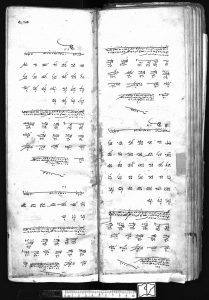
Mehmet Ali Çelik, California Üniversitesi (Davis), Tarih Bölümü’nde doktora adayıdır. Lisansüstü derecesini erken modern dönem Avrupa entelektüel tarihi alanında tamamlayan Çelik, araştırmasını Osmanlı İmparatorluğu’nun erken modern dönemdeki toplumsal ve iktisadi tarihine odaklamaktadır. Doktora projesi, Osmanlı İmparatorluğu’nun 17. yüzyıldaki genel dönüşümünü analiz ederken çeşitli Balkan ve Anadolu eyaletlerinde toprak sahibi yeni bir kırsal eşrafın ortaya çıkışının, tarım ekonomisindeki değişimlerin, mülkiyet ilişkilerinin ve sınıf yapısının önemini vurguluyor. Köylü sınıfının tarihi bu projenin önemli bir bileşenini oluşturmaktadır. Çelik’in araştırması ayrıca 16. ve 17. yüzyıllar boyunca meydana gelen uzun süreli demografik, iktisadi ve toplumsal değişimlerin izini sürüyor. Çelik, Osmanlı tarihi alanında uzmanlaşmasının yanı sıra erken modern dönem Avrupa’sı, Safevi İran’ı ve Babürlü Hindistan’ının toplumsal ve iktisadi tarihiyle de ilgileniyor.
Research Title: The Seventeenth-Century Social Transformation and Emergence of a New Rural Gentry in the Ottoman Empire
Mr. Çelik is a PhD candidate in the Department of History at the University of California, Davis. He completed his minor degree in early modern European intellectual history in his graduate program.
His research focuses on the early modern social and economic history of the Ottoman Empire. His dissertation project analyzes the general transformation of the seventeenth-century Ottoman Empire by emphasizing the significance of the emergence of a new rural landed gentry, the changes in the agrarian economy, property relations, and class structure in several Balkan and Anatolian provinces. The history of the peasantry is an important component of this project. His research also traces the long-term demographic, economic, and social changes throughout the sixteenth and seventeenth centuries. Besides his specialization in Ottoman history, Mr. Çelik is also interested in the early modern social and economic history of Europe, Safavid Iran, and Mughal India.
Fellow’s End of Academic Year Research Report:
The Seventeenth-Century Social Transformation and Emergence of a New Rural Gentry in the Ottoman Empire
My dissertation project focuses on the seventeenth-century social and economic history of the Ottoman Empire. This period has been generally understood as an era of social, economic, and political crisis and change. However, there is no explanatory historiographical framework shared by scholars. My aim is to contribute to this field by focusing on class formation processes in the provinces. I am also planning to reassess the debate on the general crisis of the seventeenth century, in which the neglect of the Balkans is still a major problem. Based on my ongoing research, I simply argue that a new landed gentry and new forms of agricultural labor emerged out of demographic and economic crises encompassing daily life in the countryside and a fiscal and oppressive crisis of the Ottoman state. The classical agrarian regime of the empire had collapsed at the turn of the seventeenth century. Subsequently, a complex amalgamation of long-term demographic, economic, social, and climatic factors, and most importantly, conscious actions of people, forged this new class in this environment of crisis, turmoil, and change.
It is generally considered that an independent peasantry remained the core of Ottoman agriculture up until the nineteenth century. No class divisions had developed based on property relations. The Ottoman economy remained intact in its ancient form, whether it was construed as being Asiatic, feudal, or something sui generis. There was no privatization and commodification of land and labor on a large scale and, consequently, no expropriation of “state-owned peasant lands” and capital accumulation. The Ottoman agricultural economy was stagnant, and no change came from within. Furthermore, the integration of the Ottoman economy into global capitalism is also explained through the peripheralization of its economy to a European-dominated market. According to this conventional reading, the growing Atlantic economy undermined Mediterranean commerce. Northern European invasion in the Mediterranean and growing European market demands peripheralized the Ottoman economy and production. In this regard, all social and economic changes, if any, in the Ottoman lands have been explained through European interventions.
My research questions this conventional understanding by emphasizing the internal dynamics of social and economic changes coming from below and by raising critical questions about the early modern social and economic transformation across the eastern Mediterranean and southeastern Europe. More specifically, I am trying to show that this new agrarian economy that emerged during the seventeenth century was different from the peasant subsistence economy that existed in the previous century. After the dissolution of the classical agrarian structure of the Ottoman Empire as a result of the general crisis of the seventeenth century, regionally diverse çiftlikization processes began. The establishment of privately owned estates and farms engaged in commercial agriculture went hand in hand with the expropriation of certain segments of the peasantry. While the dispossessed peasants became workers and sharecroppers in these estates, a new rural landed gentry came into being with a distinctive class disposition. Hence, new agrarian economic relations were established between these newly emergent social groups.
I came to this preliminary conclusion after completing my pilot research on Kütahya prior to my ANAMED fellowship and on the basis of my ongoing research on the Thessaloniki province of the Ottoman Empire (Fig. 1). During my fellowship period, first, I revised my findings, and then I have been mostly focusing on the Thessaloniki region in the Balkans. Since late September of this academic year, I have been working on various archival material that I collected from the Ottoman Archives of the Presidency of the Republic of Turkey (T.C. Cumhurbaşkanlığı Devlet Arşivleri Başkanlığı, formerly known as Başbakanlık Osmanlı Arşivi) and the digital collections of the Greek State Archives. The documents that I have been working on are mostly sixteenth and seventeenth-century Ottoman tax surveys (tahrir defterleri), local court registers (kadı sicilleri), registers of important affairs (mühimme defterleri), probate inventories, and all other relevant archival material related to provincial social and economic life. On the basis of these sources, I am trying to understand and analyze the nature of local social and economic transformation in the seventeenth century.

Fig. 1. TKGM TTD 166, The Late Sixteenth Century Tax Survey of the Thessaloniki Province (June 14th, 1569). The survey reflects the classical agrarian order of the Ottoman Empire. Names of the heads of peasant households are listed under each village, together with the taxes they pay.
My project requires a dialogue between different approaches, namely microhistory, macrohistory, economic history, historical sociology, and “history from below.” The privately-owned estates and new forms of labor found in the Ottoman tax surveys are my points of departure. The study of them requires the approach of microhistory, due to their subtle nature. This is a novel way of engaging with these tax surveys, because these sources are almost exclusively used to study the long-term changes in Ottoman agrarian society. Qualitative analysis of these surveys and cross-reading with other sources, like court registers, has helped me to reconstruct everyday details of social life without reducing people to numbers. A close reading of these sources also reveals the symptoms of social and economic change. Moreover, long-term comparative and quantitative analysis of these sixteenth and seventeenth-century surveys elucidates demographic changes, settlement patterns, and changes in property relations. Using these archival sources, I have been preparing “population tables” for these regions to trace the demographic changes over two hundred years. In parallel, my research critically engages with the concepts and questions of economic history. For that, I utilize sources about wealth, income, wages, prices, and credit in the same way that I use tax surveys, a long-term study of economic indicators, and a microanalysis of economic relations. In the end, I revise all these macro- and microelements to reconstruct a historical narrative from below about the formation of new social classes in the seventeenth-century Ottoman provinces. In addition to the in-depth analysis of the documents of the Thessaloniki and Kütahya regions, I have also collected a large amount of archival material on Sofia, Vidin, and Rusçuk (Ruse) in the Balkans and Saruhan (Manisa) province in western Anatolia. Next year, I am planning to extend the geographical scope of my research.
Throughout my fellowship period, I have been also working on my dissertation chapters on the current state of the literature, my methodology, and my findings. Furthermore, I became a part of an ongoing edited book project on the question of privately owned farms and estates (çiftlik) in the Ottoman Empire, which will revise previous debates on the topic and contribute to the literature with new findings from the early sixteenth to the late nineteenth centuries. Thanks to the ANAMED fellowship, I have been able to intensively focus on my project; otherwise, it would be impossible for me to make the same progress as I did while teaching as a graduate student.

